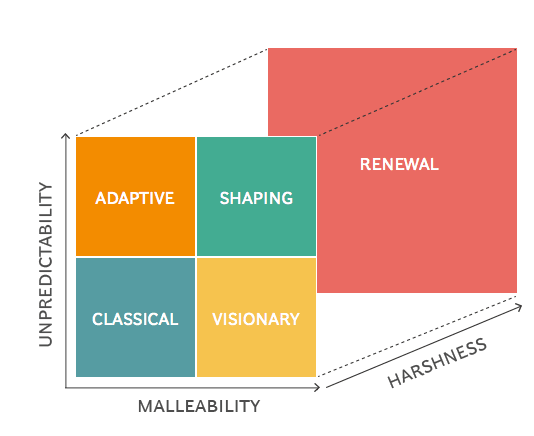One in three public companies likely won’t be around in five years. The spread between the highest- and lowest-performing companies has never been greater. Being the biggest player in an industry no longer means you’ll be the most profitable. Creating effective corporate strategy is both more important and more challenging than ever before, and this is the central theme of our new book, Your Strategy Needs a Strategy.
The classical approach to strategy—the kind most managers learned in business school—does not work well for many companies in today’s increasingly diverse and changeable business environments. For industries in which environments are unpredictable and where leadership positions change frequently, iterative experimentation may be a better approach than following a fixed long-term plan. In other industries, the right approach might be to orchestrate an ecosystem of players outside the company to shape an entire sector, much as Facebook has done.
Your Strategy Needs a Strategy explores the different environments that businesses face, identifying and matching the right approach to strategy and execution to a given situation, by applying the “Strategy Palette.” The Strategy Palette is made up of five distinct environments and strategic approaches best suited to each, which we have explored in previous posts.  We believe that if a business is going to win today, it can no longer follow a one-size-fits-all model for strategy and execution. Each company’s approach needs to be uniquely tailored to the circumstances at hand. To know what kind of environment your company is operating in, you need to ask a few fundamental questions:
We believe that if a business is going to win today, it can no longer follow a one-size-fits-all model for strategy and execution. Each company’s approach needs to be uniquely tailored to the circumstances at hand. To know what kind of environment your company is operating in, you need to ask a few fundamental questions:
- Is the environmental predictable or unpredictable?
- Is it easy or hard to shape, that is can you change the course of the industry by your actions?
- How harsh is the environment? Do you have to fight every day for your survival, or do you have the luxury of allocating resources against longer-term payoffs?
